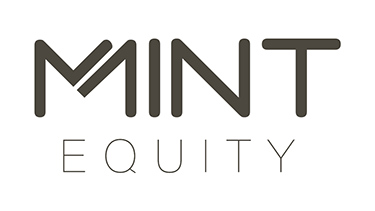It’s not uncommon to feel your heart rate increase when bidding at an auction but there are ways you can reduce the stress and anxiety.
How do auctions differ to private treaty sales in NSW?
The main difference between an auction and a private treaty sale in NSW is that buyers place their bids at an auction on a particular day in full view of competing buyers. Whereas a private treaty sale involves buyers negotiating privately with the real estate agent to arrive at a price that is agreeable to both the buyer and seller.
Also, and this is a big also, in an auction situation you do not have a cooling-off period. That means you don’t get time after the successful bid to organise your mortgage approval, bank valuation, pest and building or strata reports. The Contract of Sale requires the buyer to sign a 66W which waives your cooling-off period and you’ll need to pay the deposit on the spot if you are the successful bidder.
In a private treaty sale, you can negotiate a cooling-off period, which is usually 5 working days, however some buyers request additional days to arrange their mortgage approval and reports.
Preparing for an auction
Before you go to an auction, you’ll need to prepare your finance and ensure you’re 100% happy with the property as there is no turning back if you are the successful bidder.
Get pre-approved finance
Before you consider buying at auction or even via private treaty, speak with a mortgage broker to ensure you are able to borrow the money for the mortgage. A mortgage broker will be able to source a pre-approval from the lender which will indicate the maximum amount you can borrow, and your final bid.
Tip! Make sure you use a responsive mortgage broker such as Mint Equity, who can process your mortgage application quickly as you may not have much time between seeing the property and the auction.
Organise your pest, building, or strata reports
All your property checks need to be done before the auction. As there is no cooling-off period with auctions, you must be 100% happy with the property. Ask the real estate agent lots of questions and make sure you are comfortable with their answers.
Negotiate your terms prior to the auction
If you need a longer settlement period or want to pay 5% deposit instead of 10%, you’ll need your solicitor to negotiate with the vendor’s solicitor prior to the auction. Also, make sure you advise the acting real estate agent (in writing) of any terms you have negotiated so there are no arguments on auction day.
Tip! Always get agreed terms in writing and send a copy to the real estate agent.
Fail to prepare and prepare to fail
Get a bank cheque for the deposit
If you are successful at auction, you’ll need to pay the deposit immediately after the auction ends. You’ll be quickly ushered to a table where the agent will have the Contract of Sale ready for you to sign. Once you’ve signed it, you’ll hand over the bank cheque for the deposit. Remember, most banks aren’t open on weekends, so you’ll need to go to the bank during the week to organise the bank cheque. Most banks charge fees for preparing bank cheques, but also check if there is a fee if you are unsuccessful and have to hand back the bank cheque.
Confirm with the real estate agent the exact name the bank cheque should be made out to. Often it is the real estate agent’s trust account, but always confirm these details.
If the final price is higher or lower than the amount you’ve prepared the deposit for, you will need to provide the remaining amount to the agent on the next business day. If you’ve overpaid the deposit, you cannot ask for funds back.
Tip! If you don’t win at auction, do not tear up the cheque! Return the bank cheque to the bank and they will cancel it and return the funds to your account.
Have a bidding plan
Make sure you have a plan about how you want to play the auction, and if you’re going with a partner, discuss this together. If you are a couple, only one person can be the registered bidder, so discuss who will be bidding. When setting up a plan think of these variables;
- Will you make the first bid if no one else bids?
- Will you wait for the vendor’s bid before bidding?
- Will you counter bid quickly to show confidence? If so, what will be your increments?
- Will you counter bid if another buyer bids your maximum price?
- Will you stand at the front or at the back?
Tip! Try to remain calm, flustered bidding could mean you’ll pay more than the value or what your finance is approved for.
Buying before auction
Some vendors are willing to accept offers prior to auction, which will remove their costs of an auctioneer and also speed up the sale process. However, always remember that the terms of an auction sale still apply and you’ll still have to waive your cooling-off period by signing a 66W.
Buying at auction on the Central Coast
Whilst most properties on the Central Coast are private treaty, we are starting to see an increase in auctions, particularly for properties over $1M. The auction clearance rates for Central Coast were low at 50% for last week, however these figures were impacted by the Queen’s Birthday long weekend. The previous week was 61.9%.


